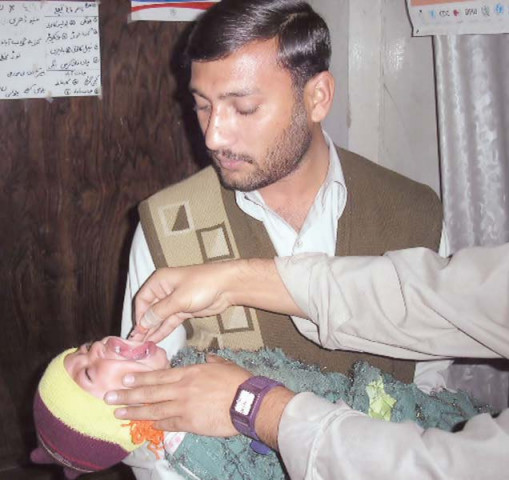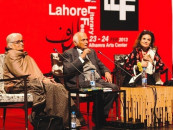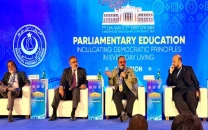Disease on the move: More polio cases despite efforts to contain it
Vaccination refusal cited as cause in new case and number of others; eradication goals seem unachievable.

Disease on the move: More polio cases despite efforts to contain it
Confirmation that a two-year-old has polio in Diamer District of Gilgit-Baltistan (G-B) has raised fears that the disease could have spread to areas previously believed to be free of the disease, despite a national polio emergency plan launched by the government in January.
The World Health Organisation (WHO) recently confirmed the case. “This is the first polio case reported from G-B in over 12 years. The last case was also reported from the same district, Diamer, in 1998,” WHO Spokesperson Gul Afridi told IRIN.
Since Diamer District is outside the zones previously thought to be affected by the virus, the WHO has immediately initiated a number of aggressive vaccination measures to help, “Stop the polio virus from circulating in the area and limiting further spread to neighbouring areas.”
Afridi said that the affected child was a girl from a family originally from Mohmand Agency in the Federally Administered Tribal Areas (Fata) along the Pakistan-Afghan border, who had settled in G-B four years ago. “The child reportedly missed the oral polio vaccine (OPV) dose due to the refusal of her family,” he added.
In March, G-B Assembly Speaker Wazir Baig said, “The region has been polio free for the past 13 years and, God willing, we will keep the region free of this disease in the future too.” Baig was inaugurating a three-day anti-polio drive targeting more than 200,000 children.
“Refusals” by parents to have their children vaccinated have been a frequently reported problem, notably in Khyber-Pakhtunkhwa (K-P), with campaigns by militants opposed to vaccination further complicating the situation.
Pakistan, one of four remaining polio endemic countries in the world, reported 32 cases in 2007, but that number rose to 144 in 2010, according to the Global Polio Eradication Initiative (GPEI) - the highest in any country in the world.
Cases over wide area
This year, 51 cases have already been reported. To add to the difficulties, according to GPEI, “Five new positive environmental samples were reported from across the country, including from Karachi, further confirming the widespread geographic transmission of wild poliovirus.”
While the disease had mainly been restricted to districts around Karachi city, a group of districts in Balochistan Province, and districts in Fata and K-P - new evidence points to the disease spreading across a wider area.
“OPV will be given to all targeted children in G-B during the measles-maternal neonatal tetanus campaign from 4-9 July. The targeted children will get their fifth dose of OPV during the next National Immunization Days campaign from 18-20 July,” Gul Afridi said.
Medical experts say “irresponsible” media reports, such as one stating that a 16-day-old infant died in Punjab earlier this month after receiving expired polio drops, have added to fears among parents and encouraged “refusals”.
“It does not seem like the vaccine caused the death, but rumours about such incidents spread fast,” said Hassan Ali, a general practitioner in Lahore.
Punjab Health Department Director-General Chaudhry Muhammad Aslam said in a statement, “The death of a baby due to the polio vaccination is out of question. The polio vaccination is an oral treatment in the form of liquid which remains in the bowels while the other medicine is administered through the veins or stomach to be mixed in blood.”
Published in The Express Tribune, June 28th, 2011.



















COMMENTS
Comments are moderated and generally will be posted if they are on-topic and not abusive.
For more information, please see our Comments FAQ